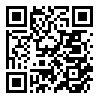Volume 14 -
mededj 2025, 14 - : 0-0 |
Back to browse issues page
Download citation:
BibTeX | RIS | EndNote | Medlars | ProCite | Reference Manager | RefWorks
Send citation to:



BibTeX | RIS | EndNote | Medlars | ProCite | Reference Manager | RefWorks
Send citation to:
Galeshi M, Ahmadzadeh-Tori N. Design, Implementation, and Evaluation of the Development of Clinical Educational Empowerment and Professional Ethics of Midwifery Students in Labor Blocks Based on the Near Peer Shadowing Method. mededj 2025; 14
URL: http://mededj.ir/article-1-543-en.html
URL: http://mededj.ir/article-1-543-en.html
Social Determinants of Health (SDH) Research Center, Babol University of Medical Sciences, Babol, Iran
Abstract: (1195 Views)
Background and Objective: Clinical education plays an important role in the development of professional skills and technical and non-technical skills of learners in the field of medical sciences. Since the main focus in the clinical education process is on patients, the sensitivity of educational design and its effective implementation is of great importance. Therefore, in response to solving existing educational problems, a near-peer shadowing process was designed and implemented for midwifery students with the aim of evaluating the performance of midwifery students in the delivery blocks of one of the training and treatment centers under the auspices of Babol University of Medical Sciences in 1402.
Methods: This study is a cross-sectional semi-experimental educational evaluation that was conducted on 50 undergraduate midwifery students. In order to better select Shadowers, students were selected based on their grade point average and class activities. The Professional Ethics Performance Questionnaire and the Student Evaluation Sheet of Teaching Method before and after the intervention were completed by the Shadowees, evaluated, and compared. Statistical analyses were performed using SPSS Statistics 26 for Windows (IBM). The significance level was set at 0.05.
Findings: The mean scores of the level of professional ethics compliance increased significantly after using the present method (P<0.001). The mean scores of perception for all domains for near-peer shadowing were significantly higher than the corresponding scores for conventional teaching (post-test) in all domains. Also, the mean test and post-test scores for peer shadowing were significantly higher than the corresponding scores for lecture teaching (P<0.001). The mean total scores of pre-test and post-test were 35.40±8.09 and 26.72±3.40, respectively. The level of job recognition of pre-test and post-test was significantly different before and after the intervention (P<0.001).
Conclusions: One of the common strategies to improve the professional capabilities of midwives is to provide opportunities for early exposure of students to the clinical setting. Among the programs that can be used to provide early clinical experiences and increase student participation in the learning process is the near-peer shadowing educational program
Methods: This study is a cross-sectional semi-experimental educational evaluation that was conducted on 50 undergraduate midwifery students. In order to better select Shadowers, students were selected based on their grade point average and class activities. The Professional Ethics Performance Questionnaire and the Student Evaluation Sheet of Teaching Method before and after the intervention were completed by the Shadowees, evaluated, and compared. Statistical analyses were performed using SPSS Statistics 26 for Windows (IBM). The significance level was set at 0.05.
Findings: The mean scores of the level of professional ethics compliance increased significantly after using the present method (P<0.001). The mean scores of perception for all domains for near-peer shadowing were significantly higher than the corresponding scores for conventional teaching (post-test) in all domains. Also, the mean test and post-test scores for peer shadowing were significantly higher than the corresponding scores for lecture teaching (P<0.001). The mean total scores of pre-test and post-test were 35.40±8.09 and 26.72±3.40, respectively. The level of job recognition of pre-test and post-test was significantly different before and after the intervention (P<0.001).
Conclusions: One of the common strategies to improve the professional capabilities of midwives is to provide opportunities for early exposure of students to the clinical setting. Among the programs that can be used to provide early clinical experiences and increase student participation in the learning process is the near-peer shadowing educational program
Type of Study: Research |
Subject:
General
Received: 2025/06/8 | Accepted: 2025/07/1 | Published: 2025/04/4
Received: 2025/06/8 | Accepted: 2025/07/1 | Published: 2025/04/4
Send email to the article author
| Rights and permissions | |
 |
This work is licensed under a Creative Commons Attribution-NonCommercial 4.0 International License. |

This work is licensed under a Creative Commons Attribution-NonCommercial (CC BY-NC)




